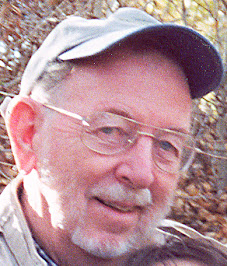The title of this post refers to my August 10 post on the Bomb, quoting the August 15, 1945 surrender statement of Japan's Emperor Hirohito: "The enemy has begun to employ a new and most cruel bomb, the power of which to do damage is, indeed, incalculable. Should we continue to fight, not only would it result in an ultimate collapse and obliteration of the Japanese nation, but also it would lead to the total extinction of human civilization." I said then that I was "impelled" to share thoughts about the Bomb by the coincidence of the annual return of the awful August 6 and August 9 anniversaries, together with release of the hugely popular movie, Oppenheimer. Which I hadn't seen.
Now having seen the film, I have to say I just hope the millions who have seen it have understood and taken seriously the film's sudden switch from history to our likely future in its last-scene warning of the "total extinction" coming "should we continue to fight."
If you haven't seen the film, here is the spoiler: Oppenheimer is talking with Albert Einstein, asking him if he remembers their earlier conversation about the Manhattan Project physicists realizing that detonating an atomic bomb might start a chain reaction igniting the nitrogen in the atmosphere, thus causing a world-ending fire. Einstein says he remembers it well. Oppenheimer replies, "I think we did it." And instantly the screen switches to a graphic view of planet Earth and we see (and hear) every country on Earth consumed by the feared world-ending nuclear flames.
Actually, the world-ending graphic looks more like the result of nuclear missile exchanges than an atmospheric ignition. Does that matter? No. Oppenheimer had realized that demonstrating an atomic bomb had started another kind of chain reaction, nuclear proliferation – carrying a near-certain likelihood of eventually causing human extinction.
Here I want to point out that we humans started another "world-ending fire" in the late 1700s by beginning exploitation (ignition) of the flammable fossils coal, oil, and natural gas. This process too being a kind of chain reaction of industrial development. Which we now see is causing devastating climate change and threatening human extinction along with other life forms in The Sixth Extinction.
It happens that recently Paul Kingsnorth edited an "Essential Wendell Berry" anthology, choosing as title "The World-Ending Fire." He took the phrase from a 2006 Berry essay on "Faustian Economics" – "The world-ending fire of industrial fundamentalism may already be burning in our furnaces and engines, but if it will burn for a hundred more years, that will be fine. Surely it would be better to intend straightforwardly to contain the fire and eventually put it out? But once greed has been made a honorable motive, then you have an economy without limits, a contradiction in terms. This supposed eonomy has no plan for temperance or thrift or the ecological law of return. It is monstrous by definition. And necessarily it must lead to limitless violence, waste, war, and destruction."
Looking at any story, I want to see if there are "good guys," individuals who choose not to continue fighting, instead trying to put a limit on "violence, waste war and destruction." In this story, I have to give Emperor Hirohito credit. The long-time Japanese governmental protocol for making important decisions was for a kind of super-cabinet called The Big Six to present a unanimous proposal to the Emperor, who would say Yes, or No. In August of 1945 the Big Six was deadlocked, three for surrender and three for continuing to fight. Hirohito broke the protocol, summoning the Big Six and telling them Japan was surrendering. That action saved many lives.
I also want to praise American general Jimmy Doolittle. During that August he commanded the US Eighth Air Force, only recently transferred from Europe to a base in Okinawa. When the Japanese started serious surrender negotiations on August 10, the US top command ordered a halt to bombing. That order was lifted on August 14, but it was so obvious to Doolittle that the war was over (Hirohito made his surrender speech at noon on the 15th), he refused to risk the lives of any of the men he commanded.
In contrast, as soon as the stop-bombing order was lifted on the 14th General Curtis LeMay sent 828 B-29 bombers and 186 fighters (most based on Tinian Island) to attack Japan one more time. Luckily, none of those planes or men were lost. Still, the contrast with Doolittle is significant.
See also, if you haven't already, what I said in the August 10 post about the amazingly good guy who happened to be an American president – John F. Kennedy
Your thoughts, please? Anyway, as always, thanks for caring – Jim Allen

